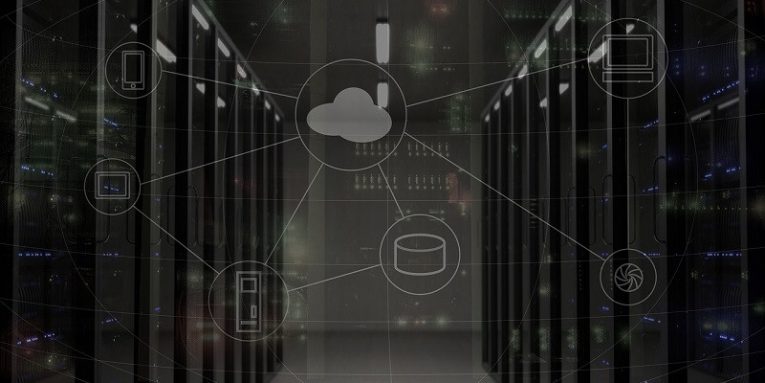Here's All You Need to Know About Cloud Security and How to Ensure It

Using cloud storage and being able to access your data at any time through the Internet is very convenient. However, if you are a security-savvy user, you should realize that keeping private and sensitive data in one place is risky. There are malicious applications like ransomware that can encrypt or destroy files on a cloud. Also, users can accidentally overwrite or delete their data by accident. Not to mention, the possibility of obtaining sensitive information attracts cybercriminals who might be interested in misusing or selling it. The same threats apply to businesses that use cloud computing services-based resources. By listing possible cloud security risks, we do not mean to discourage you from using such services. On the contrary, we wish to encourage you to use cloud services in a way that you would not have to worry about cloud security. Thus, further in the text, we provide tips on how to protect cloud services for both businesses and regular home users.
How to protect cloud services?
According to Synopsys.com, the top 10 critical cloud security threats in 2018 were data breaches, human error, data loss with no backup, insider threats, DDoS attacks, insecure APIs, exploits, account hijacking, advanced persistent threats, and spectre/meltdown. As you can see, there are a lot of different scenarios of how things might go wrong if you do not know how to protect cloud services. It is likely that the number of threats will only increase if the usage of cloud services continues to grow. Thus, we highly recommend reviewing and adapting the following tips if you want to increase your cloud security.
Make backups
Some users may think that it is much safer to use cloud storage than keep their files on removable media devices that could break. However, as we mentioned at the beginning of this blog post, there are many ways how you could experience data loss while using cloud services. Therefore, if files that are kept on your cloud are valuable, we highly recommend making a backup just in case such data gets accidentally deleted or erased on purpose by cybercriminals. Removable media devices can protect your data from such threats if you do not keep them connected to your device all the time, but only when it is time to make backup copies.
Use reputable antimalware software
Hacking into a company’s or a regular user’s cloud might not be that difficult if the device used to connect to such services is unprotected. One of the ways to secure a computer that you use to connect to a cloud is to install a reliable antimalware tool that could stand on guard. Such software should always be enabled and up-to-date to ensure maximum security. It is essential to keep your computer’s operating system and other programs installed on it up-to-date too, because outdated applications can have weaknesses that could be exploited by hackers and let them gain access to your device. Consequently, this tip is relevant to anyone who wants to ensure not only his cloud security but also cybersecurity too.
Encrypt sensitive data
It is best not to keep any confidential information on a cloud just in case it gets attacked, but there are cases when it cannot be avoided. In such situations, it is crucial to make sure that even if cybercriminals manage to hack into cloud services, they will still be unable to view any data. Users can achieve this by encrypting files stored on a cloud. There are lots of encryption tools that can help you encrypt files and decrypt them whenever you need to view them. Also, there are cloud services that come together with file-encrypting features. It is up to you or your company to decide what is the best option to encrypt sensitive data stored on a cloud.
Set up strong passwords
Using secure passwords is something that cybersecurity specialists advise all the time, and there is a good reason for it. There are lots of other authentication options, like logging in with your email, but many of us still rely on passwords, and, despite all warnings, a lot of us use weak passcodes. A survey conducted by LoginRadius.com revealed that 21 percent of respondents did not believe that recycling passwords is a risk. On the other hand, 59 percent of people who were questioned claimed they reuse passwords even though they know it is a risk. Such behavior does not surprise us since users have to remember more and more passwords every day. As a result, many choose to reuse old passcodes or create weak passwords to be able to remember them.
Fortunately, there is a way to use strong passwords for all your accounts, including your cloud services, without having to memorize them. You most likely heard about applications called password managers that can both generate strong passwords and remember them for you. If you would like to try a tool that is free to use and can offer lots of useful features, we recommend installing Cyclonis Password Manager. With it, you can generate unique passcodes from up to 32 characters. Plus, the application can not only memorize them for you but also log you into your accounts automatically. You do not have to worry about your login credentials’ security either. Cyclonis keeps them in an encrypted vault and offers extra safety features, such as Two-Factor Authentication or automatic logout.
Restrict access
This tip is most relevant to companies that use cloud-based tools and want to increase their cloud security. Even if all of your organization’s employees seem to be trustworthy, you cannot be sure that given a chance, they will not leak the company’s or its clients’ sensitive information. Thus, it is best to restrict access to information that particular employees or specific departments do not need to perform their daily tasks. It is essential not to forget to do so when a person gets moved to another department too. Also, you should change login credentials that could grant access to your cloud systems as soon as someone gets fired or leaves your company. A former employee could be bitter, and you may not even know it, or he may not be loyal enough to keep the organization’s secrets.
All in all, using cloud services has various risks, but there are ways to increase your cloud security without making a lot of changes or having to invest tons of money in it. Adopting our listed tips is a good start, but if you want to be prepared for any situation, you should also read about top cloud security threats as well as stay on top of cybersecurity news.








